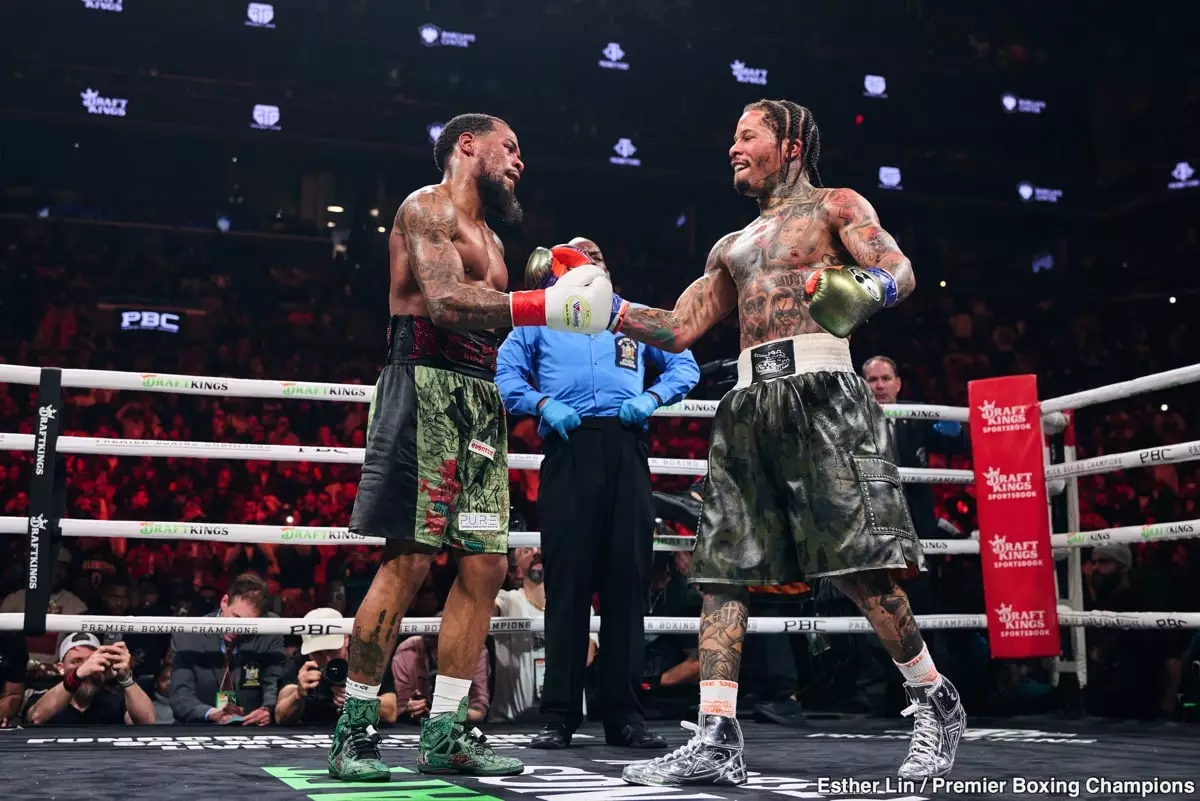In a boxing match that captured the attention of fans and experts alike, WBA lightweight champion Gervonta Davis faced off against Lamont Roach in Brooklyn, New York. The bout culminated in a contentious 12-round majority draw decision, leaving spectators buzzing with confusion and disappointment. Promoter Eddie Hearn weighed in, making it clear that he believes the New York State Athletic Commission will not change the outcome of the fight despite compelling arguments suggesting that a knockdown should have been called in the ninth round. Roach’s legal team is now pushing for the Commission to reconsider the results and potentially rectify the decision.
The Missing Knockdown: A Pivotal Moment in the Fight
One of the focal points of the bout was the moment in the ninth round when Davis inexplicably took a knee while a punch was thrown by Roach. Obviously, this raised eyebrows, as Hearn has argued that regardless of Davis’s condition at the time—he assuredly was not harmed—the mere act of touching the canvas amid actual punches should constitute a knockdown. The question arises: Why did the referee fail to recognize this critical moment? The absence of a proper review during the fight due to technical complications has compounded the situation, leading to calls from Roach’s attorney to revisit the ruling.
Hearn expressed disbelief at the lack of an official knockdown call. Citing a need for clarity, he remarked, “If you take a knee… it has to be a knockdown,” suggesting that any failure to uphold this standard undermines the integrity of the sport. However, he also pointed out that some fans have absurdly asserted that Davis should have been disqualified for returning to his corner after the incident. The fact that such reactions have surfaced underlines not only the polarization within boxing fandom but also the need for transparent and coherent officiating.
The Stakes Are High: Ramifications of the Decision
At the heart of the controversy is the potential impact on both fighters’ careers. For Roach, a win—especially one gained through a potential knockdown—could be transformative. Currently boasting a record of 25-1-2, 10 KOs, a victory would dramatically alter his standing within the sport. Conversely, for Davis, who’s built an image as one of boxing’s shining stars, an overturned decision could severely tarnish his reputation. Surprisingly, many industry insiders, including Hearn, are advocating for a rematch regardless of whether the Commission changes the result, acknowledging that both fighters have more to prove.
Hearn seems skeptical that the New York State Athletic Commission will side against Davis, a fan favorite with a significant following. This raises an important question: Is the boxing establishment prepared to prioritize integrity over popularity? The notion that drawing a winning decision might lead to an uproar among Davis’s fans raises ethical dilemmas for regulatory bodies. Many are left wondering whether the appeal system can function without bias when public relations are at stake, particularly against a backdrop of high-profile fighters and large fanbases.
Gervonta Davis: A Wake-Up Call?
Hearn suggested that this outcome might serve as a wake-up call for Davis, urging him to reassess his approach in the ring. The promoter’s comments resonate deeply in a sport where complacency can lead to devastating losses. Should the Commission rule in favor of Roach, the ramifications could prompt serious reflections on strategy for Davis, encouraging him to return to his competitive mindset. This sort of self-awareness is vital for athletes at any level; complacency can easily lead to missteps in high-pressure situations, especially against formidable challengers like Roach.
The Road Ahead: What Lies for Both Fighters?
Looking forward, the implications of this draw are multifaceted. While many hope for a rematch that will set the record straight, the dynamic between the fighters, promoters, and governing bodies will undeniably shape the course of their careers. Whether or not the decision stands, both fighters must now navigate the aftermath and prepare for what may be their defining challenges yet. For Roach, the urgency of proving himself after such a controversial draw is palpable, while for Davis, the need to not let this moment define his future is paramount. The boxing landscape is watching closely, and the next moves from all involved will be crucial in determining the future of both fighters.


Leave a Reply